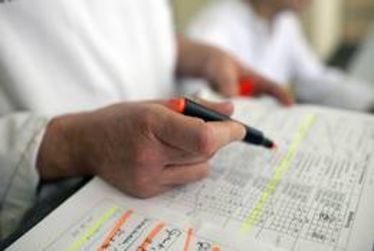Prof. Franz Theuring: "Treatment of Alzheimer's Disease by employing Tau-Aggregation-Inhibitors: the time for TAU is NOW" (Seminar am MPI)
Alzheimer’s disease (AD) is an irreversible, neurodegenerative disorder characterized by the progressive loss of memory and thinking skills. It was first presented by Alois Alzheimer, who discovered neurofibrillary tangles in the brain tissue of a woman who died with dementia at the age of 56, recently diagnosed as a PSEN1 mutation The neurofibrillary tangle is composed of tau protein, and tau aggregation in the brain is directly linked to clinical dementia. There are currently two main hypotheses regarding the cause of dementia in AD: the A-beta cascade hypothesis based on aggregation of extracellular A-beta, and the tau aggregation hypothesis based on intracellular tau aggregates. Contrary to the common belief that neurofibrillary pathology is a late stage process in AD, analysis of a large post-mortem series showed that Braak stage 1 begins in 4th and 5th decades of life, and that it takes some 20-30 years to develop poverty dementia. The clinic-pathological correlations, strongly supported by the genetic evidence for a primary role for tau protein aggregation in a wide range of neurodegenerative disorders led to the inference that a drug which blocks the aberrant tau binding interaction which is necessary for aggregation could have beneficial effects in the treatment of AD.
Am Donnerstag, dem 17.07.2014, um 16 Uhr findet das Seminar "Treatment of Alzheimer's Disease by employing Tau-Aggregation-Inhibitors: the time for TAU is NOW" mit Prof. Dr. rer. nat. Franz Theuring von der Charité Berlin statt.
Veranstaltungsort ist das Auditorium des Max-Planck-Instituts für molekulare Biomedizin, Röntgenstraße 20, 48149 Münster.
Weitere Infos unter: https://www.mpi-muenster.mpg.de/en/events/frontier/index.html
Am Donnerstag, dem 17.07.2014, um 16 Uhr findet das Seminar "Treatment of Alzheimer's Disease by employing Tau-Aggregation-Inhibitors: the time for TAU is NOW" mit Prof. Dr. rer. nat. Franz Theuring von der Charité Berlin statt.
Veranstaltungsort ist das Auditorium des Max-Planck-Instituts für molekulare Biomedizin, Röntgenstraße 20, 48149 Münster.
Weitere Infos unter: https://www.mpi-muenster.mpg.de/en/events/frontier/index.html
Termin in lokalen Kalender importieren
Dieser Termin wurde eingetragen über ein "offenes Konto". Sie möchten für Ihre Einrichtung hier auch Termine eingeben? Einfach Mail senden an medizin.fak@uni-muenster.de.


